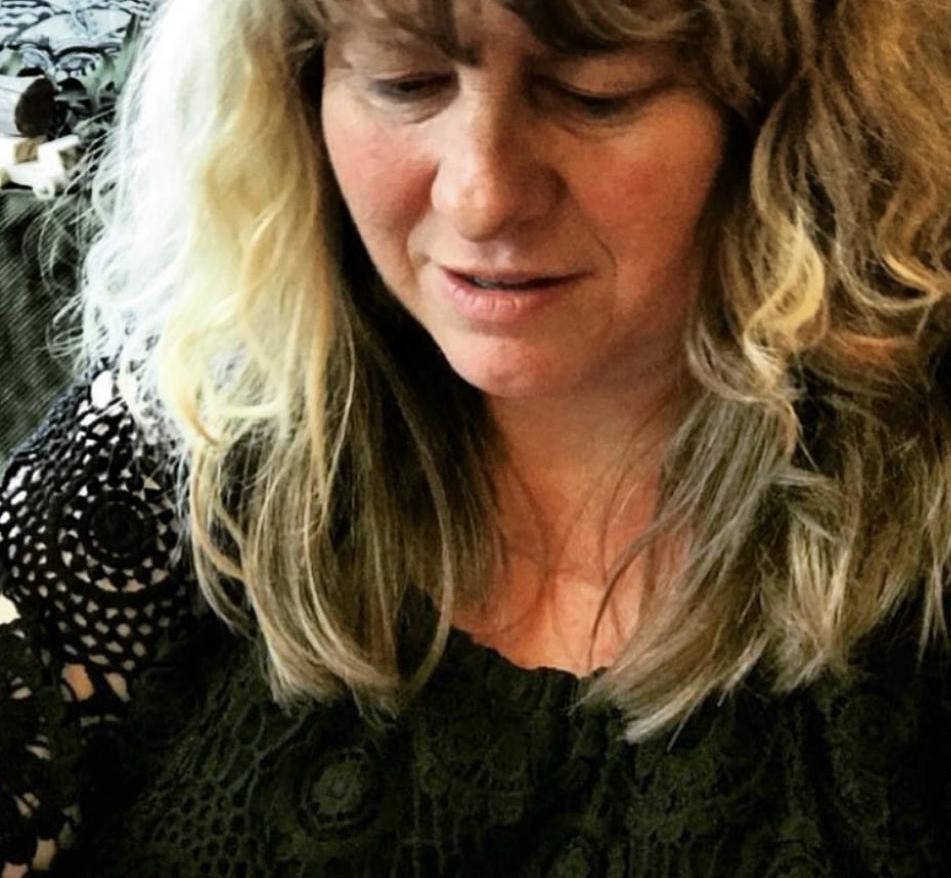Annette Sax (Taungurung)

Who are you and where do you come from?
My name is Annette and I am proud Taungurung woman from the Eastern Kulin Nation. I live on Wurundjeri Country with my husband Bob and our 3 children Iluka (18), Mani (15) and Kiella (12).
Tell us what growing up was like for you?
Growing up in a big family with everyone from my extended family to friends always feeling welcome was what I remember most. My Mum, Taungurung Elder Aunty Maureen (Franklin) was an Artist and the best Storyteller. I feel so blessed to have had such a strong inspiring role model in her. My Dad Jim Sax is now 81 and worked as a cane cutter, fruit picker, builder to name a few. My parents’ love, compassion and work ethic are something I really admire about them both and can see this in each of my own sisters and brothers.
Who are the women that inspire you?
When I was 21 I moved to Melbourne and met Sue Atkinson (Yorta Yorta) who was my lecturer in the Aboriginal Child Care Course run by the Victorian Aboriginal Child Care Agency (VACCA) and Prahran TAFE. Sue and the late Aunty Iris Lovett-Gardiner, a Gunditjmara Elder, teacher and activist took me under their wing, guided and supported me. I studied with Delta Kay (Arakwal) and Bindi James (Yorta Yorta) who I later worked with at Yappera Children’s Service with Aunty Eunice Wright (Gunditjmara) and her daughter Donna Wright who was our Director. These staunch Black women are the quiet achievers who worked tirelessly to support Aboriginal children and families.
Living and working in the Western Suburbs of Melbourne I was so fortunate to meet strong Tiddas Karen Jackson – KJ (Yorta Yorta), Paola Balla (Wemba Wemba) and Priscilla Reid (Gamilaroi) who have supported me spiritually over the years.
At almost 50 I reflect on the women who have inspired me in my life, and I celebrate their deadly qualities!
What does self-determination mean to you?
For me Self-Determination is Aboriginal people determining our own cultural, spiritual and economic development.
Self-Determination is the late Uncle Roy Patterson, Taungurung Elder passing on his Cultural Knowledge which I share with my children.
Self-Determination is seeing my mentor Aunty Fay Muir, Boonwurrung Elder reclaiming her language and culture and giving me permission to share the Aboriginal Hokey Pokey when I’m working with children who attend VACCA playgroups.
Self-Determination is Yarn Strong Sista being a sustainable Aboriginal business for 17 years, which continues to support young Aboriginal girls and women in employment.
What does NAIDOC Week mean to you?
To me NAIDOC Week means remembering the Freedom Fighters Uncle Wally Cooper and Uncle Doug Nicholls who fought for the human rights of our people.
NAIDOC is about our Communities coming together to celebrate our survival and the strength of our people and culture.
Can you please tell us about the work you do in Community?
Last year I facilitated the ‘Walert Drum Project’ with Melbourne Aboriginal Youth Sport & Recreation or MAYSAR’s Aboriginal Women’s Group. I shared the Possum Hunt Show, Aunty Iris Lovett’s story of growing up on Gunditjmara Country and the importance of Possum in Victoria. Women learnt the tradition of Walert Walert, designed and burnt their own story on their drum. This was an empowering healing experience for many women as they reclaimed their cultural right.
This year I have visited each of the VACCA Playgroups in the North West to conduct Storytelling and Ochre Painting and we are looking forward to later in the year the children and families visiting our Yarn Strong Sista (YSS) Studio and Office where I will share more storytelling and art.
Much of the work we do within YSS is visiting early childhood services across Melbourne where there might only be one or two Aboriginal children attending the pre-school. It’s important that mainstream early childhood services are culturally safe for our families. We conduct professional development for teachers around Aboriginal Pedagogy as informed by the Research of Dr Sue Atkinson. Sue had interviewed Aboriginal Elders about ‘What they wanted Aboriginal children to learn about their Culture.’ We feel privileged to share local Elders voices through YSS Workshops. We are decolonising these spaces for our Aboriginal and Torres Strait Islander families.
What future would you hope for young Aboriginal women?
I hope that young Aboriginal women grow up feeling proud and strong within their Aboriginal identity and that they continue to have a voice in spaces where our Old People did not. I hope they will continue to honour our Ancestors and Elders who fought for the rights we have today.
